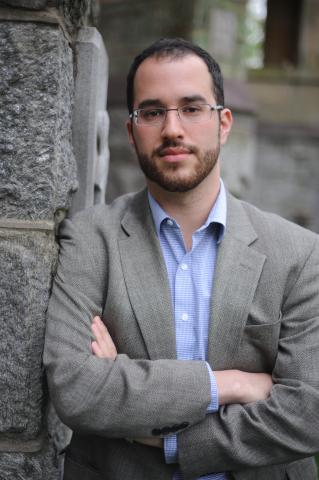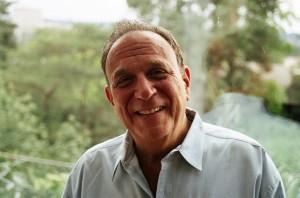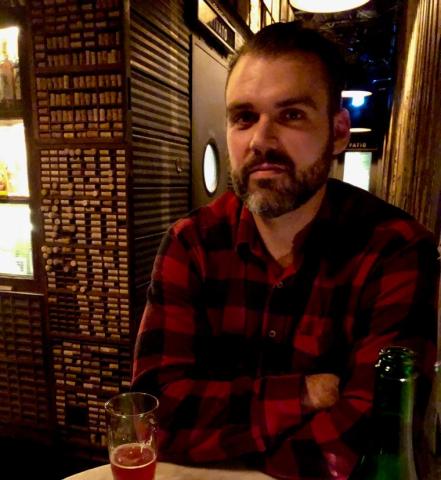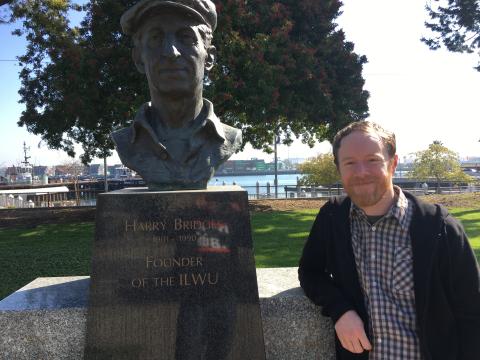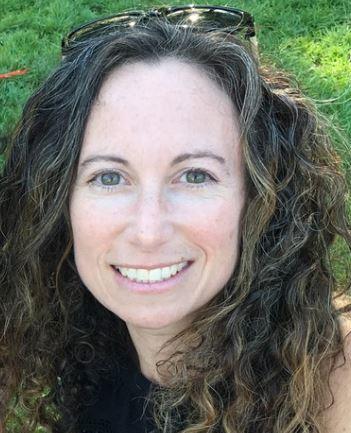Announcing 2020-2021 Labor Research Grant Recipients
Each year, the Harry Bridges Center for Labor Studies awards thousands of dollars in research funding to University of Washington graduate students and faculty. Since 1992, the Center has awarded over one hundred grants, producing dozens of reports, books, articles, and more. We are pleased to announce the recipients of Labor Studies research funding for the 2020-2021 academic year.
Faculty Labor Research Grants
Dan Berger, School of Interdisciplinary Arts and Sciences, UW Bothell, "Towards a Labor History of Affirmative Action"
Professor Berger is awarded a Faculty Labor Research Grant in support of ongoing research for his forthcoming book, Stayed on Freedom: One Family’s Journey in the Black Freedom Struggle, which is under contract with Basic Books. Stayed on Freedom is a dual biography of two long-time but little-known Black radicals, Michael and Zoharah Simmons (formerly Gwen Robinson). Their lives, which have closely tracked the progression of the modern Black freedom struggle, reflect how the struggle was lived and made at the grassroots, where ordinary people did extraordinary things. The book describes the Black freedom struggle as a movement of movements, engaging every conceivable political issue—unionism, anti-militarism, women’s emancipation, migrant rights, and sustainability.
Berger is currently working on a portion of this book that explores the social movement origins of affirmative action and focuses on how working-class organizers of color pursued an insurgent use of these policies in the 1960s and 1970s across three domains: universities, labor unions, and nongovernmental organizations. This is an important history because whilst affirmative action has become widespread it has been divorced from its labor movement origins. As Berger argues “the incorporation of affirmative action policies into institutional hiring practices and “diversity plans,” blurs its origins in antiracist labor radicalism.” Through a micro-history of his two protagonists and their involvement with affirmative action Berger locates the centrality of civil rights and social movement unionism in campaigns over affirmative action and how they saw it as the lever to push for greater power for a multiracial working class. To its grassroots practitioners, affirmative action was a means of challenging racism within the labor movement as well as within schools, workplaces, and other institutions.
With this award Berger will complete several major archival research trips and will also conduct oral history interviews with participants involved in these struggles, which form a central component of the book.
Professor Emeritus Phil Bereano and Michael Gilbert, "Lessons in Labor, Technology, and Strategy: An Oral History of the Work of Phil Bereano"
This project is an oral history database on the work and life of Phil Bereano, UW Professor Emeritus of Technology and Public Policy. This important source will document and disseminate strategic lesson in the study of labor, technology, and policy drawing on Professor Bereano’s (and his communities of practice’s) decades of work and research.
Bereano is a renowned researcher, scholar, and activist. His academic and professional work has principally been focused on the ethical and social considerations of technologies, especially genetic engineering. A big goal and achievement of his life has been to educate the public around the topic of ethics in technology and to encourage and enable their participation in these important debates.
As an activist he has been a vocal defender of civil liberties, from LGBTQ rights to the rights of labor. For almost 20 years he has been a member of the National Board of the American Civil Liberties Union and he chaired its Committee on Databases and Civil Liberties. Bereano’s activism has been infused with a commitment to public participation in social and governmental decision-making. His ideas and contributions have been especially influential in the field of information technologies/computer databases arguing for the necessity of public participation in decisions about science and technology that effects millions of workers lives.
This fully searchable database will be a valuable resource for scholars, activists, and policymakers working and looking to enforce change in the fields in which Bereano’s life and work has intersected. This includes those interested in labor and labor policy especially as connected with civil liberties.
The goal is to capture every relevant story of Phil Bereano’s professional and political life, in the form of recorded and written narrative, provided with historical context through contemporaneous documents and historical reference, of the people, organizations, and events connected to these stories. The fully searchable database will consist of recordings, transcripts, interview notes, correspondence, copies of documents and excerpts and links to the archives of others that provide depth, context, and other points of view.
Labor Archives of Washington, “Disseminating Research on Labor and Social Justice Collections on the Seattle General Strike and the Centralia Tragedy of 1919”
This project is an expansion of the Labor Archives of Washington’s traveling exhibit, “Solidarity Centennial: The Legacy of the Seattle General Strike Era and the Centralia Tragedy of 1919.” This unique exhibit tells the story of the Seattle General Strike and the Centralia tragedy, events that are often cited as among the most notable in United States and Pacific Northwest labor history. The exhibit brings together a rich array of primary documents from one of the strongest collections at the Labor Archive with interpretive text and research based on these collections. This highly accessible exhibit has already proven a great success in bringing this important history to a broader public. It also hopes to encourage future research and scholarships on these topics.
New materials will include twelve exhibit panels and a twenty-four to thirty-two-page exhibition catalog. The existing nine-panel traveling exhibit focuses on the timeline, and gives an overview, of the General Strike. The new components will emphasize the critical contributions of women workers and communities of color to the strike and will also focus in more detail on the events in Centralia. Women and communities of color – especially the Japanese American community – played critical roles in the support and sustenance of the strike, yet their contributions have not been uniformly or consistently examined or recognized in existing scholarly works. The exhibition catalog will include all the primary sources used in the exhibit, the full exhibit text, and the bibliography of sources consulted. It will be available in print and in a digital version.
Professor Sunila Kale, Jackson School of International Studies and Chair and Director of South Asian Studies, "From Company Town to “Company Village”: Corporate Social Responsibility (CSR) in India’s Contemporary Extractive Industry"
Professor Kale’s research revolves around the labor-capital dynamics in the contemporary extractive economy in eastern India, chiefly in the state of Odisha. She investigates the modalities by which capital is managing unemployment in this region by way of investigation into Corporate Social Responsibility programs (CSR).
In Odisha private sector mining and metal industries have expanded to become a significant part of the economy in rural areas. These industries have resulted in immense social and environmental dislocation through land dispossession. They now also offer few employment possibilities due to greater mechanized and automated production. This has met with much resistance, protests, and often violent classes with local communities and workers who have been displaced and are suffering unemployment as a result of these industries. In response private companies have developed corporate social responsibility programs – as a kind of corporate social ethics - to mitigate these problems, manage rural aspirations and secure their profits.
Kale’s research shows how CSR’s have become key mechanisms for the mediation of rural aspirations, directing such aspirations away from plant gates and mine sites. She argues that CSRs are thus making extractive capitalism possible by confronting and managing those on the peripheries. They are a coercive force that has proven useful as a mechanism with which extractive companies can respond to, manage, and occasionally forestall disquiet.
Kale has already completed extensive field research for this project. This grant will support the final phase of this research which will consist of visiting sites where CSR programs are intervening in the domain of agrarian productivity. Research will consist of interviews and participant observation with those involved and touched by these programs. Kale plans to conclude this research in 2021 and will then work on a book proposal based on her research.
Graduate Student Labor Research Grants
James Steinhoff, Post-Doctoral Student, eScience Institute, “Automation and Autonomy: Labor, Capital and Machines in the Artificial Intelligence Industry”
Steinhoff’s research revolves around labor in the contemporary artificial intelligence industry. This is an area that will likely have substantial impacts on labor but one that has received relatively little attention with regards to the labor that goes into producing these technologies. He is currently working on his book manuscript PostAutomation and Autonomy: Labor, Capital, and Machines in the Artificial Intelligence Industry. This book assesses and critiques the Marxist theoretical framework of immaterial labor with an empirical study of the contemporary artificial intelligence (AI) industry. Capital has historically used machines to analyze, fragment and automate labor processes. However, theorists of immaterial labor argue that computers shift the technological balance of power in favor of workers, who gain increasing autonomy from capital. Steinhoff proposes that work in the AI industry, which should be the epitome immaterial labor, according to promoters of the theory, does not exhibit the qualities attributed to it. On the contrary, this emergent type of labor is already subject to processes of fragmentation, deskilling and automation. Further, he shows how an emerging technique of “synthetic automation” in this industry might increase the autonomy of capital, not labor.
Henedina Tavares, Doctoral Student, Educational, Policy, Organizations and Leadership Program, “Cultivating Equitable Collaborations: A Case Study of a School District Forging Meaningful Relationships with Latinx Migrant Farmworker Families”
Tavares research project seeks to understand the collaboration between a central Washington school district - situated in an agribusiness context - and Latinx (im)migrant families, that aims to improve educational systems for migrant farmworker families. The frequent uprooting and moving from school to school as a consequence of labor migration provides complex institutional challenges for (im)migrant families and schools to cultivate meaningful relationships. By examining the broader socio-political and economic forces related to labor migration that shape school- family-community collaborations, this case study will offer insights in forging relationships with schools, farm growers, and Latinx (im)migrant farmworkers to create equitable education for migrant children. Tavare’s asks, how does this School District situated in an agribusiness context cultivate partnerships with Latinx (im)migrant farmworker families and farmers to enhance student learning and outcomes?
Ellie Terry, Doctoral Student, Evans School of Public Policy and Governance, “The Unintended Impacts of the U.S. Tax and Transfer System on Economic Mobility”
Public policies designed to be social welfare enhancing can have differential impacts on the population and in some cases, can be harmful to the most vulnerable populations. Terrie’s research paper exposes the unintended impacts of the U.S. tax and transfer system on economic mobility. While designed separately, government assistance programs and taxes are in reality experienced together. This results in situations where low-income individuals face a confusing tradeoff between more employment income and a loss in government assistance. Terrie’s work identifies the location and the size of such pain points, as measured by effective marginal tax rates for a variety of household types across the United States. Using survey data from the Current Population Survey it is demonstrated that higher marginal tax rates are associated with lower probability of a household moving to a higher income bracket, either by increasing their hours or by switching to a higher paying job. This effect is only found among those who face the highest marginal tax rates: low-income households and especially those with children.
Andrew Hedden, Doctoral Student, Department of History, “Empire of Tomorrow: Seattle and the Making of Global Capitalism, 1962-1983”
Andrew Hedden’s dissertation project investigates the production of late 20th century globalization through the lens of urban history by showing how conflicts between business and labor in the city of Seattle in the early 1970s contributed to political and economic changes that have shaped the United States ever since. Hedden is currently researching the 1971 strike of the International Longshore and Warehouse Union, one of the most prolonged and significant labor disputes of the post-World War II period and a critical moment in the rise of Seattle as a global trade hub. This subject will part of a a central chapter in Hedden’s dissertation.
Shixin Huang, Doctoral Student, Henry M. Jackson School of International Studies, “Contesting the Rights to Work: The Disability Rights Movement against Occupational Segregation in China”
Using people with visual disabilities mobilizing against occupational segregation as a case study, Huang’s doctoral dissertation examines the disability rights movement in China as a zone of sociopolitical encounter--of confrontation, engagement, and negotiation—in which the market, the state, and the diffusion of global rights discourses converge and compete. More specifically, this study situates people with disabilities as marginalized workers in the post-socialist market economy in China, and unravels disabled workers’ negotiations and contestations with the authoritarian state to (re)claim their social rights and cultural identity.
Tracey Pierce, Doctoral Student, School of Social Work, “Attitudes and Engagement Towards Mutual Support Methods to Mitigate Workplace Violence Among Frontline Healthcare Workers”
The impacts of workplace violence on nurses is a growing issue affecting patient safety, nursing retention rates, and the psycho-social well-being of healthcare workers. The Occupational Safety and Health Administration (OSHA) endorses strategies such as peer counseling and critical-incident debriefing to mitigate the effects of workplace violence. Pierce’s research argues that these traditional methods of top-down decision-making fail to be egalitarian and diverse. To address the priority of engaging frontline healthcare workers in solution-making efforts, this study asks emergency department nurses and nursing assistants to characterize informal mutual support inventions, attitude levels and engagement. The results can be used to implement programs that best, and better, serve the needs of frontline healthcare workers facing, and at risk of, violence.
Isaac “Izzy” Sederbaum, Evans School of Pubic Policy and Governance, "A Preliminary Investigation of Wage Theft Data 2006-2019"
Sederbaum’s research is centered on wage theft in Washington with a focus on wage theft claims that were closed between 2006 and 2019. His work seeks to determine the amounts claimed over this 13 year period, which industries have had the largest number of claims, in which regions we see the greatest number of claims filed and in which region we see the greatest amount of claim growth. This will be achieved by matching businesses to Bureau of Labor Standards categories, rather than their current WA Department of Labor Industries categories (or in many cases, no category at all) for a more generalizable analysis. This data will then be used to explore the questions of whether wage theft is an unintended consequence of Seattle’s minimum wage ordinance?
